Fiscal and monetary policies are in contradiction with each other which has negative implications for achieving the macroeconomic and fiscal targets presented by the government in the Federal Budget 2023-24. The budget portrays a weak resource mobilization strategy where net revenue receipts of the federal government are not enough to cover even the interest payments. This was stated by the experts in a seminar jointly organized by the Applied Economics Research Centre (AERC) and Social Policy and Development Centre (SPDC) at the University of Karachi.
Dr. Tehseen Iqbal, Assistant Professor AERC, said that after the announcement of an expansionary budget, SBP announced a strict monetary policy stance, maintaining the policy rate at a high level of 21%. Therefore, the objectives and the current paths of both macroeconomic stabilization policies contradict each other. While the State Bank of Pakistan expects a reduction in inflationary expectations through contractionary policies, fiscal policy simultaneously fuels inflationary expectations. It targets a higher growth rate by increasing current and development expenditures. In a period characterized by stagflation, effective communication and coordination between monetary and fiscal policies are crucial for managing twin deficits and exchange rate volatility.
Dr. Aamir Siddiqui, Assistant Professor, AERC, said that measures introduced in the budget reflect a hybrid Import Substitution Industrialization strategy broadly similar to that adopted during 1955-68, except that the new strategy is contextualized with a new liberal policy regime, whereas the former used import licensing and exchange rate management. He said that similar to the earlier strategy, the new regime is likely to fail because (a) there is no motivation for moving from low productivity to high productivity for capital goods industries or (b) to set up the domestic supply chain for exportation or (c) to set up a monitoring and evaluation system for assuming the maturing of the new strategy.
Mr. Muhammad Sabir, Principal Economist SPDC, presented the fiscal scenario. He said that the Federal Budget 2023-24 was presented against a challenging macroeconomic backdrop and a complex political situation by an outgoing government as the tenure of the current assembly is set to end on August 13, 2023. Consequently, effective implementation of the policy measures introduced in the budget will depend on the ownership of the future government. He said that the budget was expected to take decisive steps towards fiscal sustainability by ensuring a primary surplus, reevaluating the debt-servicing strategy, and rationalizing the public sector development program. However, the Federal Budget 2023-24 presents an entirely contrasting picture. He said that the matter of particular concern is that the federal government’s net revenue receipts are budgeted to be Rs 6.9 trillion, which is even lower than the budgeted interest payment of Rs 7.3 trillion. This alarming situation implies that borrowing would be required to finance a part of the markup payment and the rest of the total federal expenditure.
Dr. Pervez Tahir, former Chief Economist, Government of Pakistan, stressed the need for the government to focus on the expenditure side to keep the fiscal indicators under the desirable limits. He said that the government has been pursuing the goal of increasing the tax-to-GDP ratio for several decades now. In the 1990s, the tax-to-GDP ratio was over 13%, which has steadily declined to below 9%. This implies that our tax-collecting system has failed to achieve the desired objectives. Therefore, the government should focus more on containing expenditures, which would need the strong political will of the government to introduce fundamental reforms in the government departments for cutting expenditures.
Earlier, Dr. Khalid Iraqi, Vice Chancellor University of Karachi, delivered his speech and Dr. Nooreen Mujahid, Director AERC, welcomed the participants. Mr. Muhammad Asif Iqbal, Managing Director SPDC delivered vote of thanks.
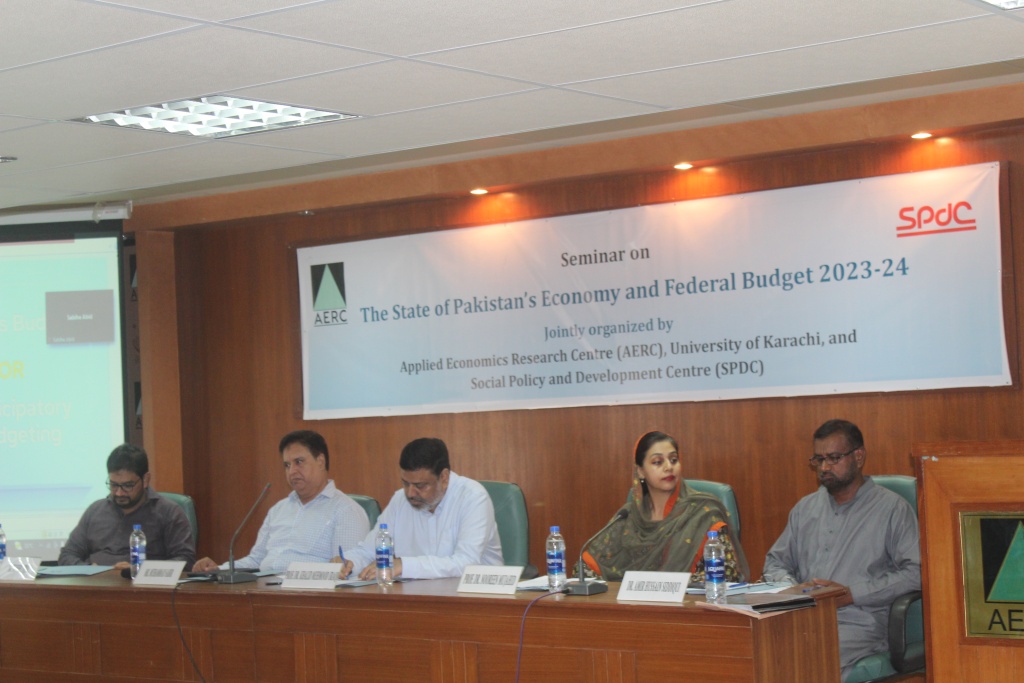
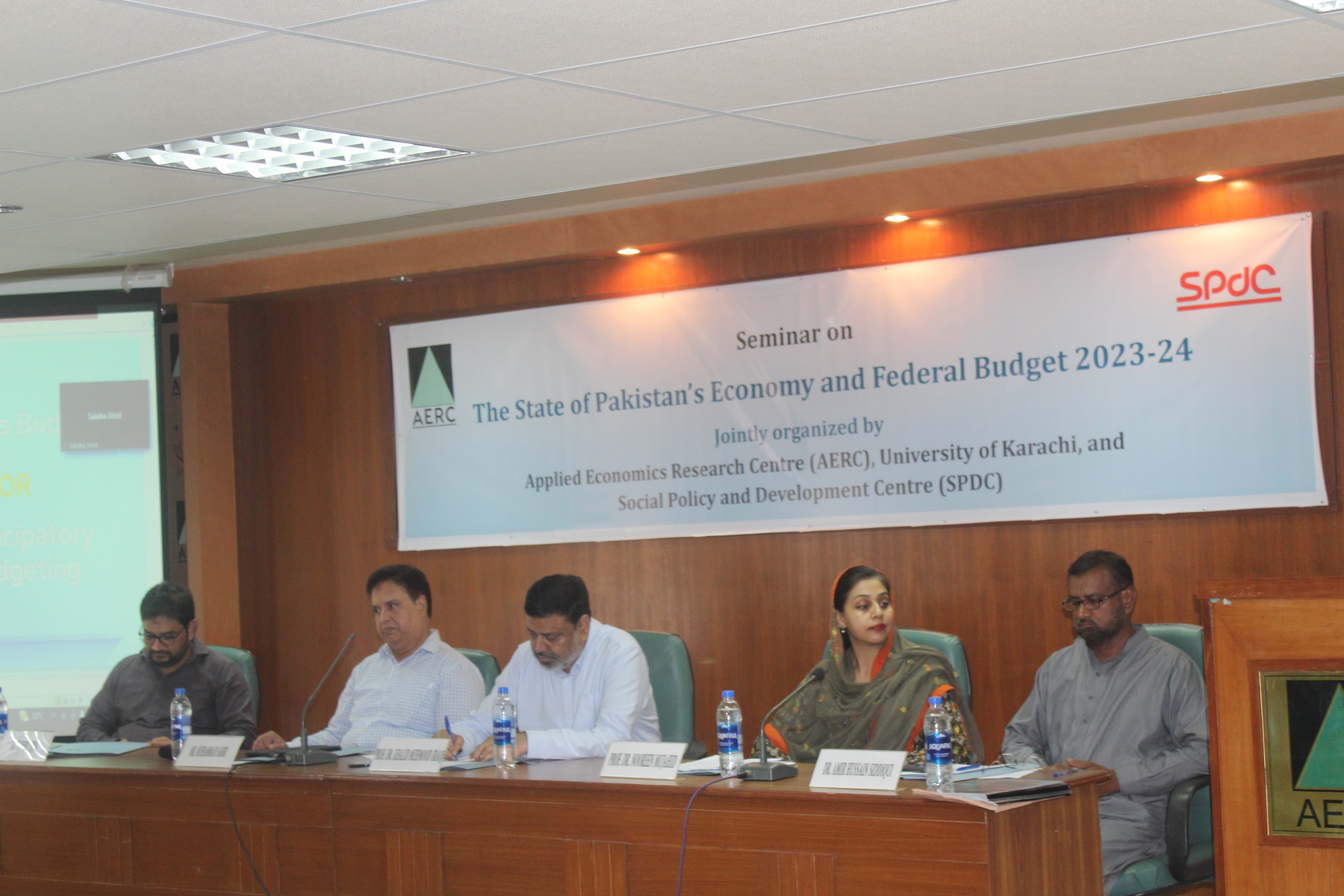
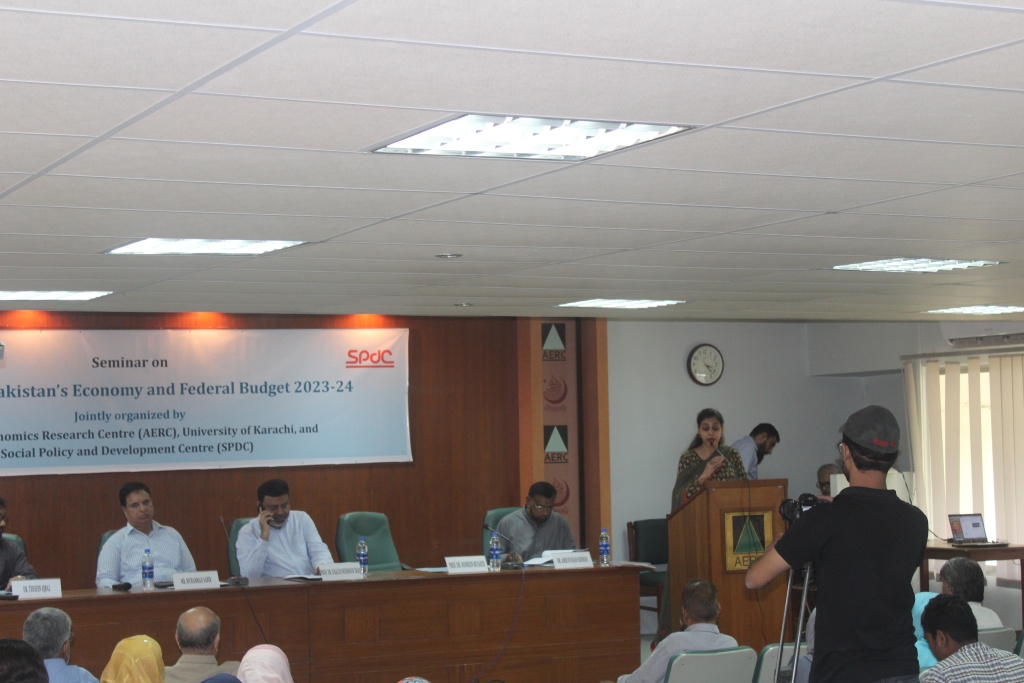
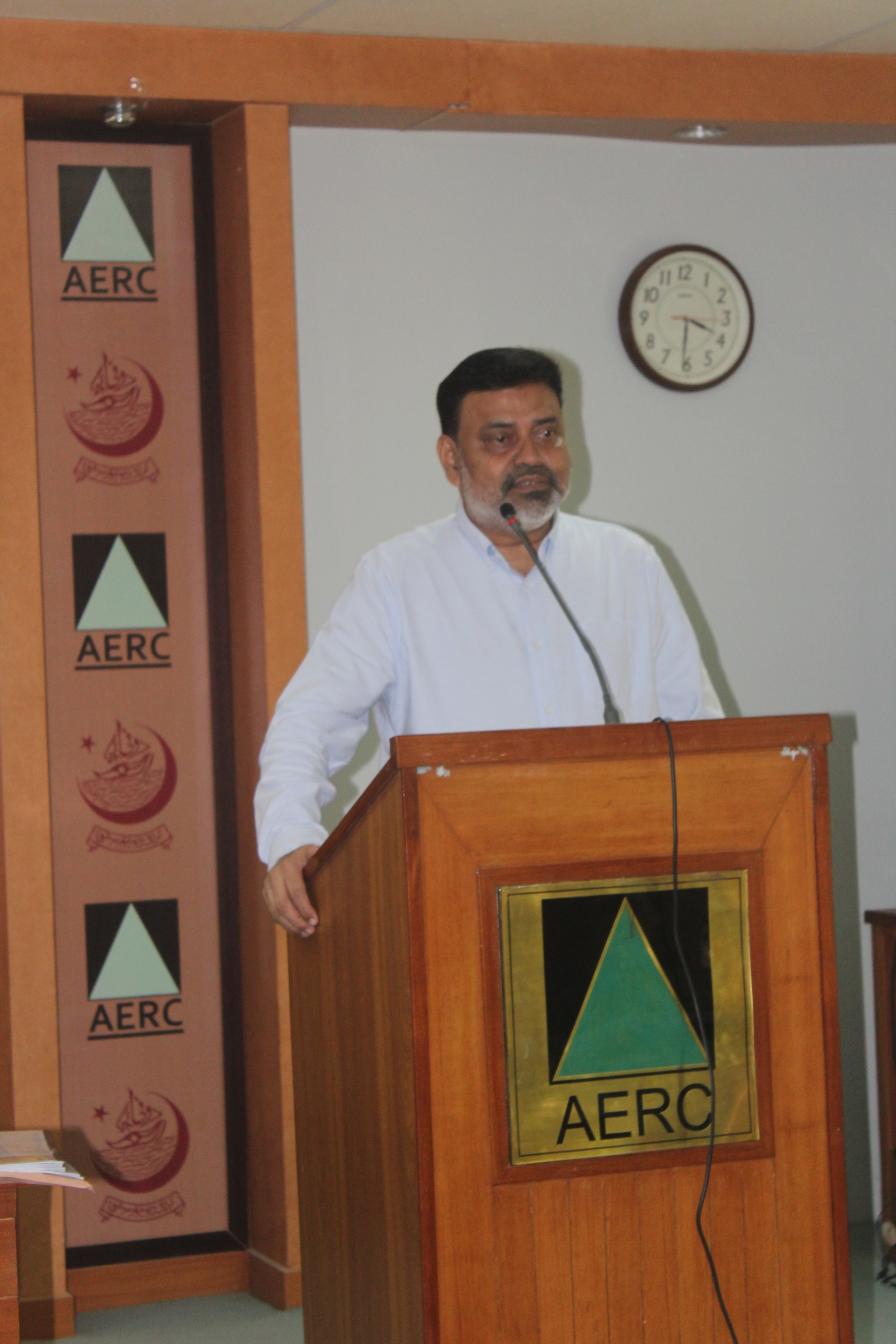
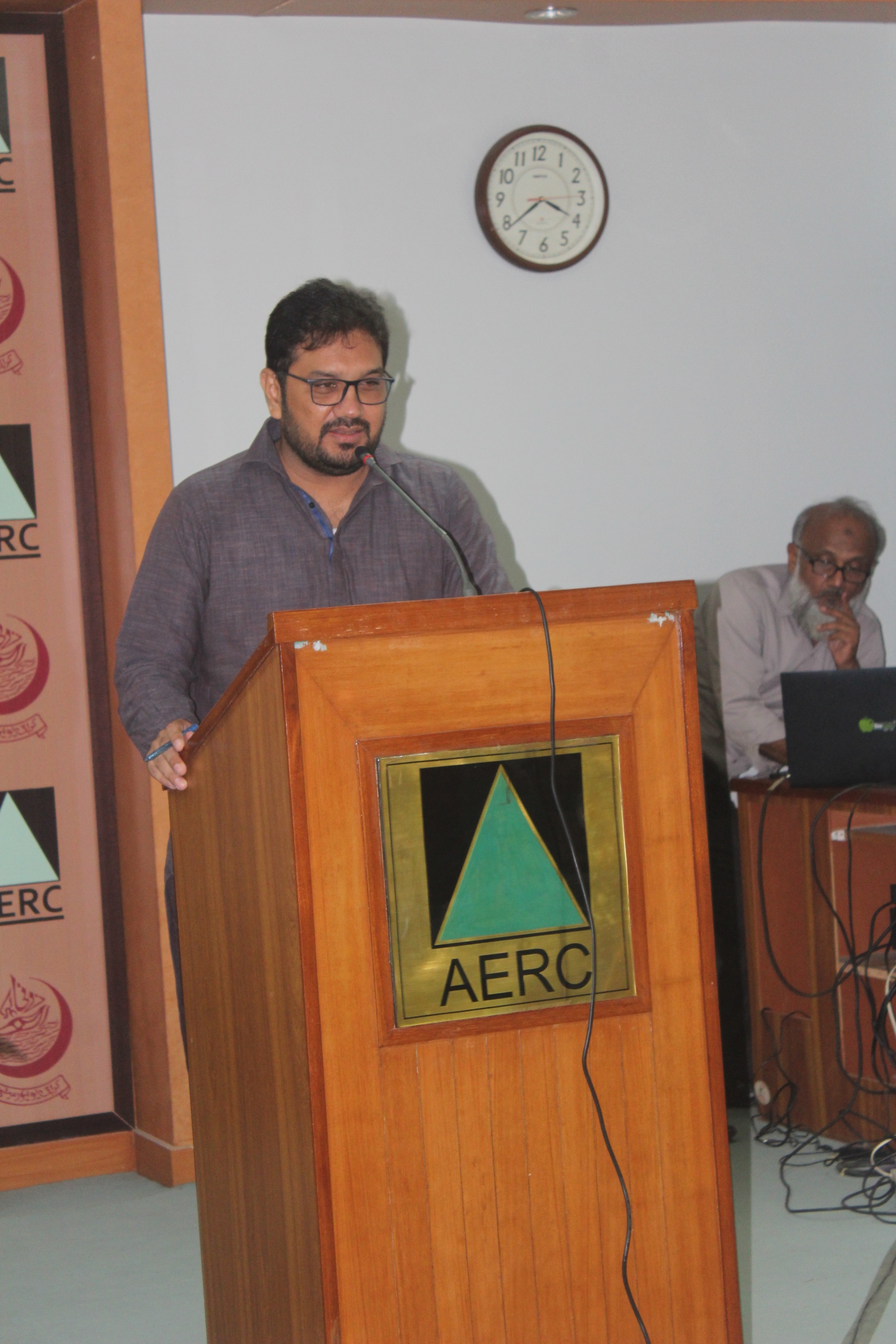
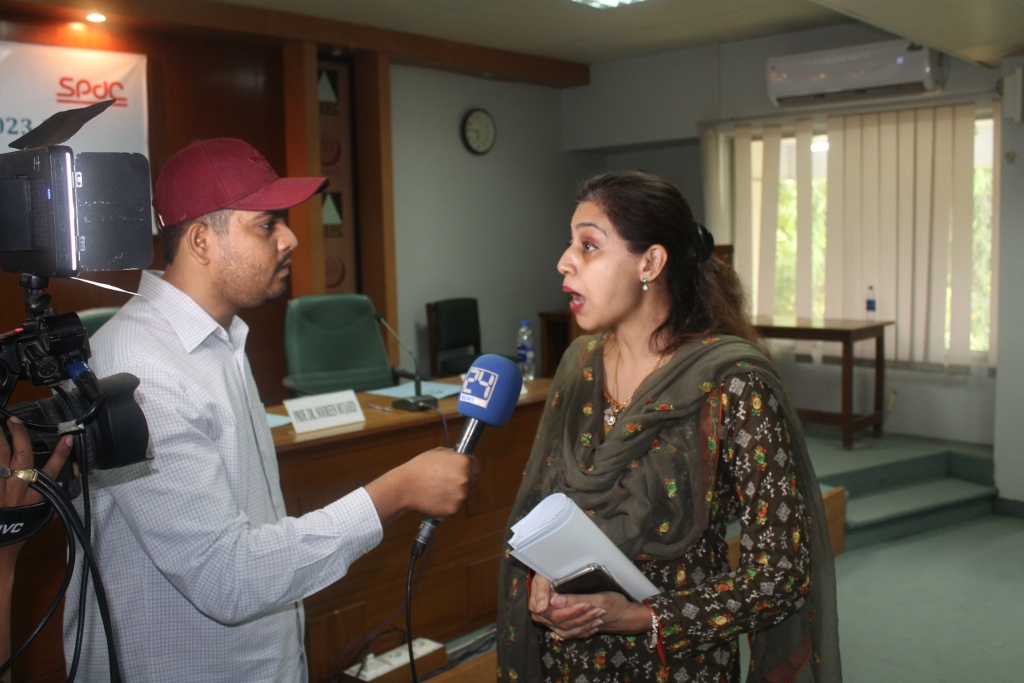
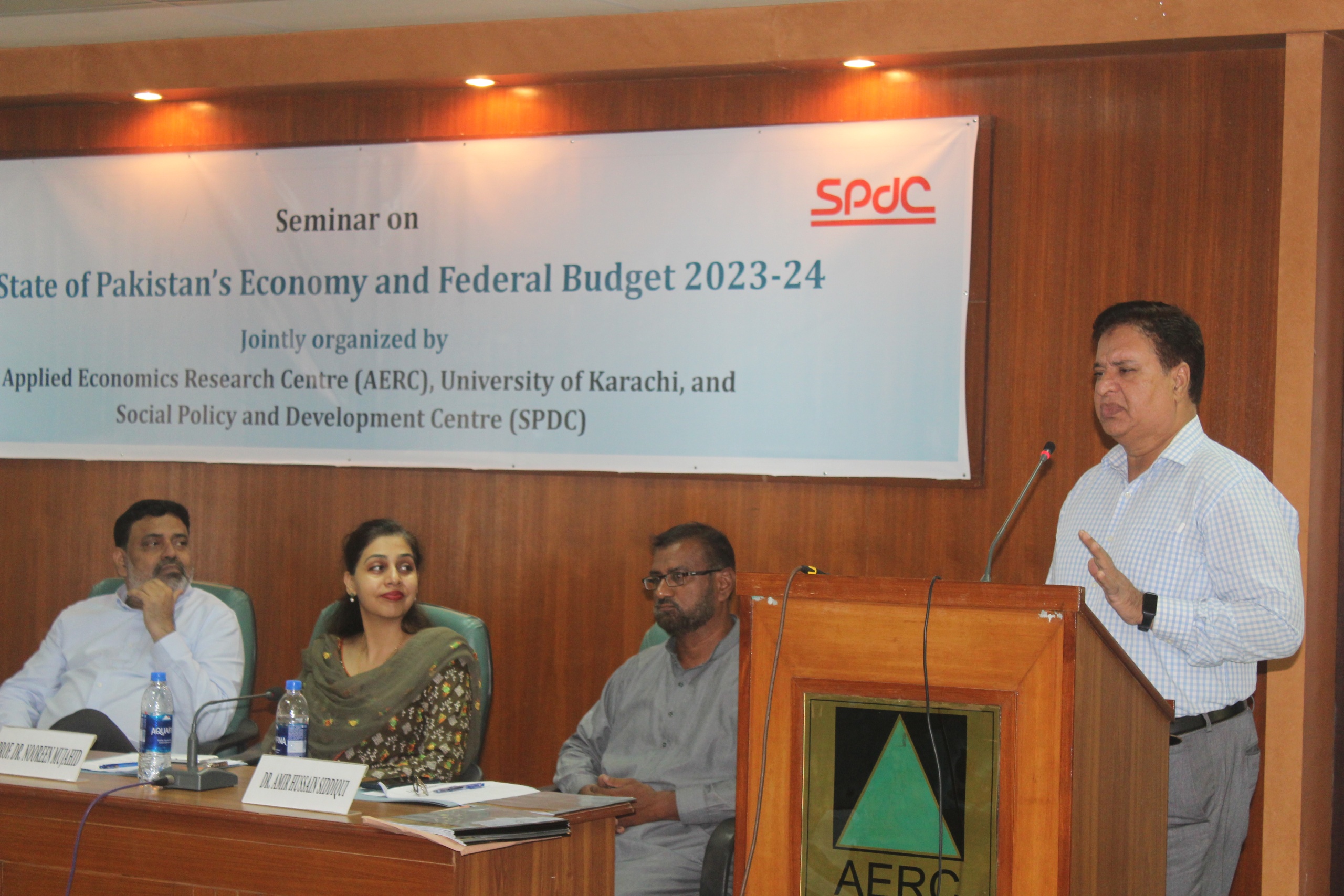
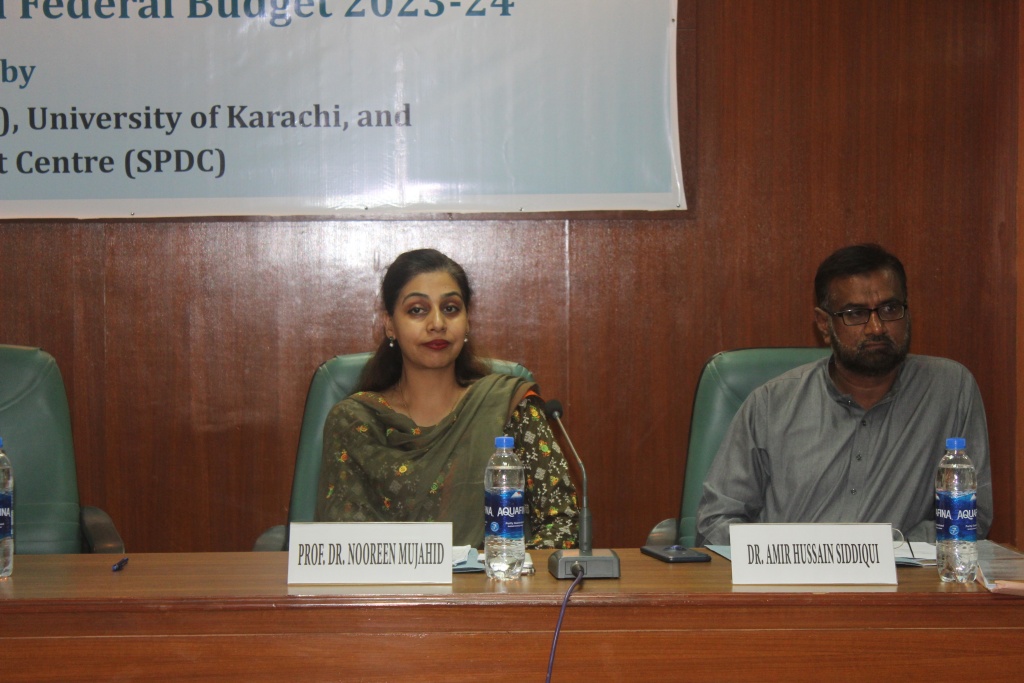
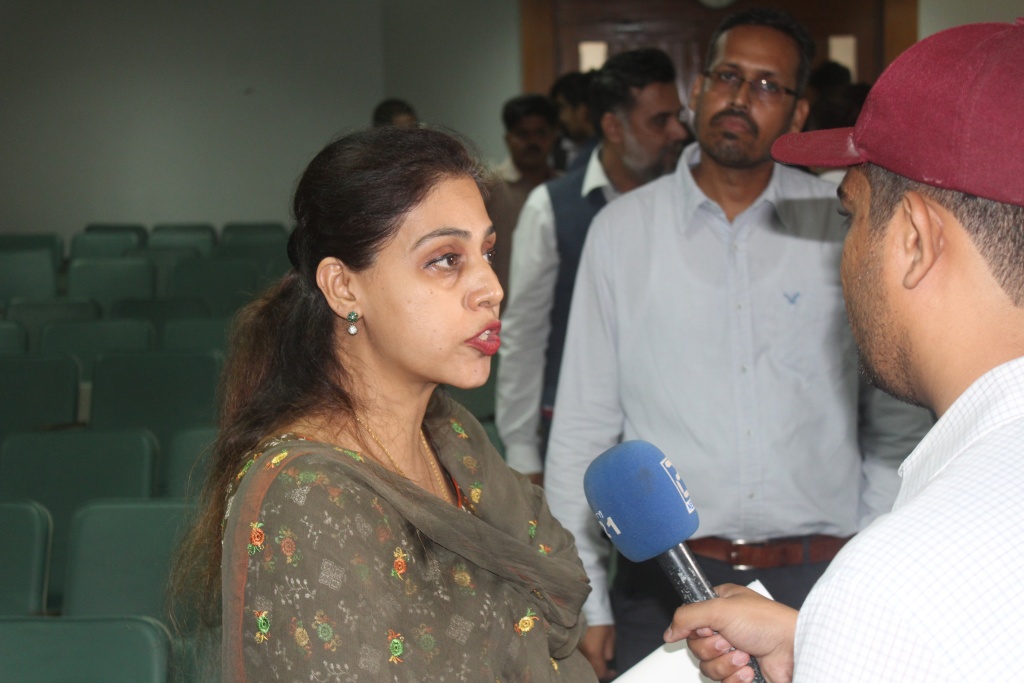
.


